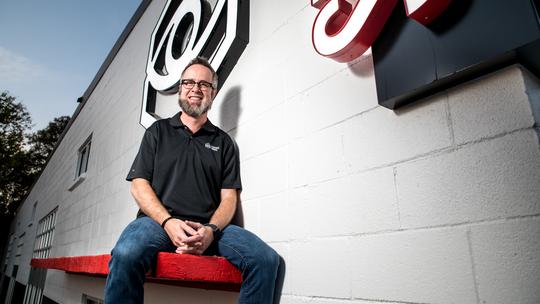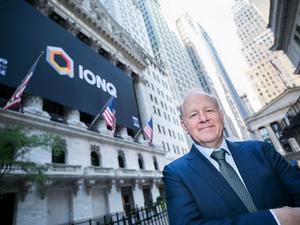
Following IonQ Inc.’s (NYSE: IONQ) launch on Wall Street and subsequent news that Berkeley, California's Rigetti & Co. Inc. would also soon go public, the investment buzz around quantum computing is only gaining steam.
And that could be a bad thing, said technology entrepreneur William Hurley, better known as "Whurley," speaking Tuesday at the University of Maryland’s first Quantum Investment Summit.
Whurley, the CEO of Austin, Texas-based quantum software company Strangeworks Inc., told the inaugural conference — which was sponsored by the university’s Quantum Startup Foundry to help pair promising quantum companies with potential investors — the investing excitement surrounding the nascent technology could have detrimental impacts before the market can even get off the ground.
“I fear the amount of capital coming into it. In [1975], a very brilliant guy wrote a book about IBM software and management, and he noticed that when you put more money on a project that was behind, when you put more people on a project that was behind, it got further and further behind. Because when you are doing software, you do not need a lot of people,” said Whurley, referencing Fred Brooks’ book, “The Mythical Man-Month: Essays on Software Engineering.”
Because of the potential computing gains quantum technology can offer multiple industries, investors have been taking more notice of the fledging sector.
In March 2020, management consulting firm McKinsey & Co. forecast the market for quantum technology would be worth more than $1 trillion by the mid-2030s. And the investing pouring into quantum startups is, in part, what concerns the entrepreneur.
“I don’t understand the round dynamics happening in quantum right now. I think they are utterly insane,” he said. “I think you are going to see funding cool down. I think you are already seeing cool down.”
Whurley noted that for some quantum companies he tracks, the valuation markdowns from their last round of fundraising have swung widely lower for many, potentially degrading the value of the company’s stock options held by its employees.
When that happens, he said, then companies face the possibility of losing talent in a sector where it is already a scarce resource.
“Here’s how you tell the funding is screwed up: the options are bad,” he said. “You can tell the options are bad by watching on LinkedIn how many people move from company to company to company, trying to reset that bell. This is a problem, your employees are everything.”
Part of the problem, Whurley said, is that quantum technology, while very promising, is not yet an established industry. While advancements are being made in the hardware that will drive quantum technology, the software that will help make it both useful and accessible to the public has to develop and grow collaboratively.
That means startups, particularly in quantum software, need to keep their employees invested and their options valuable, even ahead of potential investors.
“If you look at the markdowns, you are talking about companies going from $140 million, $200 million down to $40 million, $50 million. You are talking about companies going from $360 million in Europe down to $70 million,” he said. “And you are seeing valuations go up, and you are seeing some accretive stuff for the people that hold shares and the employees, but most of these employees are going to be underwater on their options. You’ve done a fourth round on hundreds of millions of dollars? As an engineer, what’s my stock worth?”
The other challenge is with all the talk of advancements in pharmaceutical development and cybersecurity concerns generated by quantum comes the possibility of federal and international regulation. That would be the biggest threat to the technology outside of not wisely investing in the industry.
“If your quantum computer can’t be used outside of the United States starting next year for the next 10 years, you are not going to have enough customers to have enough money to build your company or for us to build an industry,” he said. “Everybody should be talking to their congressman and their senators. Everybody should be hiring a lobbyist.”
That being said, Whurley added that while the quantum industry isn’t yet established, he's all in on it as an investor and forecasts the “boom years” of advancement to possibly run from 2023 through 2026.
But to make it work, he said companies need to work together to develop quantum capabilities and provide the value frequently referenced in its potential.
“Let’s go out, let’s work together, let’s drive this industry forward, let’s get the adoption that we so desperately need to keep things moving at the pace we’ve set them at with the hype and let’s execute,” he said. “I don’t want to hear about experiments being run on a machine for free where the press release makes it sound like you made some money. I want to hear about where somebody gave you $10 million over three years to do something with quantum, because then we all benefit.”




